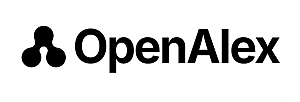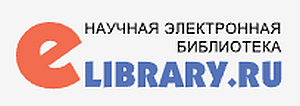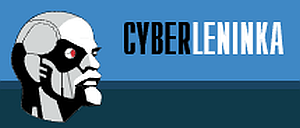Объединение универсальной эпистемологии с формальной аксиологией в мультимодальной формальной аксиоматической теории «сигма + 2c», и философские основания математики (на англ.)
DOI:
https://doi.org/10.47850/RL.2023.4.4.88-113Ключевые слова:
формальная аксиоматическая теория знания; априорное знание; эмпирическое знание; априоризм Канта; формализм Гильберта; теорема Гёделя о неполноте; двузначная алгебраическая система формальной аксиологииАннотация
Статья посвящена исследованию кантовского априоризма, являющегося предпосылкой формализма Гильберта в философских основаниях математики. Цель – построение некой формальной аксиоматической теории знания, в которой возможно построение формальных выводов формул, моделирующих формализм Гильберта, из допущения кантовского априоризма математического знания. Научная новизна: впервые построена некая логически формализованная аксиоматическая система универсальной философской эпистемологии «Сигма + 2С» как обобщение уже опубликованной системы формальной эпистемологии «Сигма + С». В сравнении с «Сигма + С», некий новый символ включен в алфавит языка-объекта «Сигма + 2С», а именно, символ, обозначающий модальность идеала (совершенства): «это полно, что …». Также, в системе «Сигма + 2С», одна из схем аксиом системы «Сигмы + С» существенно обобщена. В «Сигма + 2С» дедуктивно доказано, что при допущении априорности математического знания, его полнота и непротиворечивость эквивалентны.
Библиографические ссылки
Ершов, Ю. Л., Целищев, В. В. (2012). Алгоритмы и вычислимость в человеческом познании. Новосибирск: Издательство Сибирского отделения Российской академии наук.
Ershov, Yu. L., Tselishchev, V. V. (2012). Algorithms and Computability in Human Cognition. Novosibirsk. (In Russ.)
Ивин, А. А. (1970). Основания логики оценок. Москва: Издательство Московского университета.
Ivin, A. A. (1970). Foundations of Evaluation Logic. Moscow. (In Russ.).
Лобовиков, В. О. (2011). Логико-философское обоснование гипотезы о формально-этической противоречивости формальной арифметики, исследованной К. Гёделем. Известия Уральского федерального университета. Серия 3: Общественные науки. № 1. С. 14-28.
Lobovikov, V. O. (2011). A Logical-Philosophical Justification of a Hypothesis of Formal-Ethical Inconsistency of the Formal Arithmetic Investigated by K. Gödel. Proceedings of the Ural Federal University. Series 3: Social Sciences. no. 1. pp. 14-28. (In Russ.).
Лобовиков, В. О. (2017). Объединение нормальной и ненормальной модальных логик в одной аксиоматической системе философской эпистемологии. Дискурс-Р. Т. 4. № 2. С. 163-169.
Lobovikov, V. O. (2017). Combining Normal and Non-Normal Modal Logics in One Axiomatic System of Philosophical Epistemology. Discourse-P. Vol. 14. no. 2. pp. 163-169. (In Russ.)
Лобовиков, В. О. (2018). Эволюционная эпистемология и ненормальная модальная логика знания. Вестник Томского государственного университета. Серия: Философия. Социология. Политология. Т. 41. № 1. С. 5-14. DOI: 10.17223/1998863Х/41/1
Lobovikov, V. O. (2018). Evolutionary Epistemology and Non-Normal Modal Logic of Knowledge. Journal of Tomsk State University. Series: Philosophy, Sociology, Political Studies. Vol. 41. no. 1. pp. 5-14. DOI: 10.17223/1998863Х/41/1 (In Russ.).
Тарский, A. (1948). Введение в логику и методологию дедуктивных наук. Москва: Государственное издательство иностранной литературы.
Tarski, A. (1948). Introduction to Logic and to the Methodology of Deductive Sciences. Moscow. (In Russ.)
Целищев, В. В. (1978). Понятие объекта в модальной логике. Новосибирск: Наука.
Tselishchev, V. V. (1978). The Notion of Object in Modal Logic. Novosibirsk. (In Russ.)
Целищев, В. В. (2004а). Нормативный характер дедуктивных теорий и значение математических терминов. Философия науки. Т. 20. № 1. С. 71-82.
Tselishchev, V. V. (2004a). The normative character of deductive theories and the meaning of mathematical terms. Philosophy of Science. Vol. 20. no. 1. pp. 71-82. (In Russ.)
Целищев, В. В. (2004b). Нормативность дедуктивного дискурса: феноменология логических констант. Новосибирск: Нонпарель.
Tselishchev, V. V. (2004b). Normative-ness of Deductive Discourse: Phenomenology of Logic Constants. Novosibirsk. (In Russ.)
Целищев, В. В. (2005). Непротиворечивость и полнота как нормы дедуктивного мышления в свете теорем Гёделя о неполноте арифметики. Философия науки. Т. 25. № 2. С. 34-52.
Tselishchev, V. V. (2005). Consistency and completeness as the standards of deductive thinking from the standpoint of Gödel’s theorems about incompleteness of arithmetic. Philosophy of Science. Vol. 25. no. 2. pp. 34-52. (In Russ.)
Целищев, В. В. (2013). Рационалистический оптимизм и философия Курта Гёделя. Вопросы философии. № 8. С. 12-23.
Tselishchev, V. V. (2013). The Rationalistic Optimism and Kurt Gödel’s Philosophy. Voprosy Filosofii. no. 8. pp. 12-23. (In Russ.)
Целищев, В. В. (2021). Философский раскол: логика vs метафизика. Москва: Канон+; РООИ «Реабилитация».
Tselishchev, V. V. (2021). Philosophy Schism: Logic vs Metaphysics. Moscow. (In Russ.)
Bessonov, A. V. (2022). On the Independence of Gödel’s Incompleteness Theorems. In: A. V. Hlebalin (Ed.). Analytical Philosophy: History Trajectories and Development Vectors. Proceedings of the International Scientific Conference, Dedicated to 80th Anniversary of Scientific Research Supervisor of the Institute of Philosophy and Law of Siberian Branch of Russian Academy of Sciences V. V. Tselishchev. Novosibirsk. pp. 5-8.
Bradie, M., and Harms, W. (2020). Evolutionary Epistemology. [Online]. In: E. N. Zalta (ed.). The Stanford Encyclopedia of Philosophy (Spring 2020 Edition). Available at: https://plato.stanford.edu/archives/spr2020/entries/epistemology-evolutionary/. (Accessed: 4 March 2022).
Bull, R., and Segerberg, K. (1984). Basic Modal Logic. In: D. Gabbay, F. Guenthner (Eds.). Handbook of Philosophical Logic, vol. II: Extensions of Classical Logic Dordrecht. D. Reidel Publishing Company. рp. 1-88.
Carnap, R. (1931). Overcoming Metaphysics by logical Analysis of Language. Erkenntnis. Vol. 2. pp. 219-241.
Carnap, R. (1935). The Rejection of Metaphysics. In: M. Weitz (Ed.), 20th-Century Philosophy: The Analytic Tradition. New York. Free Press. pp. 206-220.
Carnap, R. (1956). Meaning and Necessity: a study in semantics and modal logic. Chicago and London. University of Chicago Press.
Carnap, R. (1967). The logical structure of the world. Pseudo-problems in philosophy. Berkeley and Los Angeles. University of California Press.
Chisholm, R. (1976). Knowledge and belief: de dicto and de re. Philosophical Studies. Vol. 29. pp. 1-20.
Hilbert, D. (1990). Foundations of Geometry. Translated by L. Unger. 2nd English ed. La Salle, IL. Open Court Publishing Co.
Hilbert, D. (1996a). Axiomatic thought. In: W. B. Ewald (Ed.) From Kant to Hilbert: A Source Book in the Foundations of Mathematics. Vol. 2. Oxford, New York. Oxford University Press Inc. pp. 1105-1115.
Hilbert, D. (1996b). The new grounding of mathematics: First report. In: W. B. Ewald (Ed.) From Kant to Hilbert: A Source Book in the Foundations of Mathematics. Vol. 2. Oxford, New York. Oxford University Press Inc. pp. 1115-1134.
Hilbert, D. (1996c). The logical foundations of mathematics. In: W. B. Ewald (Ed.) From Kant to Hilbert: A Source Book in the Foundations of Mathematics. Vol. 2. Oxford, New York. Oxford University Press Inc. pp. 1134-1147.
Hintikka, J. (1962). Knowledge and Belief: An Introduction to the Logic of the Two Notions. Ithaca, NY. Cornell University Press.
Hintikka, J. (1974). Knowledge and the Known: Historical Perspectives in Epistemology. Dordrecht. D. Reidel Publishing Co.
Hintikka, J., and Hintikka, M. (1989). The Logic of Epistemology and the Epistemology of Logic: Selected Essays. Dordrecht. Kluwer Academic Publishers.
Kant, I. (1994). The Critique of Pure Reason. Fundamental Principles of the Metaphysics of Morals. The Critique of Practical Reason. Preface and Introduction to the Metaphysical Elements of Ethics. General Introduction to the Metaphysics of Morals. The Science of Right. The Critique of Judgement. In: M. J. Adler (Ed.). Great Books of the Western World. V. 39: Kant. Chicago; London. Encyclopedia Britannica, Inc.
Kant, I. (1996). Prolegomena to any future metaphysics: in focus. London; New York. Routledge.
Kneale, W. (1962). Modality de dicto and de re. In: E. Nagel, P. Suppes, and A. Tarski (eds.). Logic, Methodology and Philosophy of Science. Stanford. Stanford University Press. pp. 620-631.
Kripke, S. A. (1963). Semantical Analysis of Modal Logic I. Normal Modal Propositional Calculi. Zeitschrift fur mathematische Logik und Grundlagen der Mathematik [Journal of Mathematical Logic and Foundations of Mathematics]. Vol. 9. Issue 5-6. pp. 67–96.
Kripke, S. A. (1965). Semantical Analysis of Modal Logic II: Non-Normal Modal Propositional Calculi. In: The Theory of Models (Proceedings of the 1963 International Symposium at Berkley). Amsterdam. North-Holland. pp. 206–220.
Leibniz, G. W. (1903). General Investigations concerning the Analysis of Concepts and Truths [Generales Inquisitiones de Analysi Notionum et Veritatum]. In: L. Couturat (Ed.). Leibniz’ unpublished booklets and fragments from Royal Library of Hannover [Opuscules et Fragments Inédits de Leibniz: extraits de la Bibliothèque royale de Hanovre]. Paris. Alcan. pp. 356-399 (In French)
Leibniz, G. W. (1969). Philosophical Papers and Letters. Dordrecht. D. Reidel.
Leibniz, G. W. (1981). New essays on human understanding. Cambridge [Eng.]; New York. Cambridge University Press.
Lobovikov, V. O. (2009). K. Gödel’s incompleteness theorems and a hitherto unknown non-trivial formal equivalence of “true” and “provable”. In: Collection of Abstracts of International Conference “MAL’TSEV MEETING” dedicated to the 100th anniversary of Anatolii Ivanovich Mal’tsev (Sobolev Institute of Mathematics, Novosibirsk State University, August 24-28, 2009). Novosibirsk. p. 220.
Lobovikov, V. O. (2011). A proof of a formal-axiological inconsistency of the formal arithmetic investigated by K. Gödel (the proof essentially using own axioms of formal axiology). In: V. I. Markin (Ed.). Proceedings of 7th Smirnov Readings in Logic, Moscow, June 22-24, 2011. Мoscow. pp. 92-93.
Lobovikov, V. O. (2018). Proofs of Logic Consistency of a Formal Axiomatic Epistemology Theory "" , and Demonstrations of Improvability of the Formulae "(Kq q)" and "(q q)" in It. Journal of Applied Mathematics and Computation. Vol. 2. no. 10. pp. 483-495. DOI: 10.26855/jamc.2018.10.004
Lobovikov, V. O. (2020). Knowledge Logic and Algebra of Formal Axiology: A Formal Axiomatic Epistemology Theory Sigma Used for Precise Defining the Exotic Condition under which Hume-and-Moore Doctrine of Logically Unbridgeable Gap between Statements of Being and Statements of Value is Falsified. Antinomies. Vol. 20 no. 4. pp. 7-23DOI: 10.24411/2686-7206-2020-10401
Lobovikov, V. O. (2021). A Logically Formalized Axiomatic Epistemology System Σ + C and Philosophical Grounding Mathematics as a Self-Sufficing System. Mathematics. Vol. 9. no. 16. p. 1859. DOI: 10.3390/math9161859
Poincaré, H. (2013). The Foundations of Science: Science and Hypothesis, The Value of Science, Science and Method. New York. The Science Press. Prior, A. N. (1952). Modality de Dicto and Modality de Re. Theoria. Vol. 18. no. 3. pp. 174-180.
Reid, C. (1996). Hilbert. New York. Springer.
Salmon, N. (1997). Is de re belief reducible to de dicto? In: A. Kazmi (ed.). Meaning and Reference. The Canadian Journal of Philosophy. Supplementary Volume 23. pp. 85-110.
Sosa, E. (1970). Propositional attitudes de dicto and de re. Journal of Philosophy. Vol. 67. pp. 883-896.
Zach, R. (2019). Hilbert’s Program. [Online]. In: E. N. Zalta (ed.). The Stanford Encyclopedia of Philosophy (Spring 2020 Edition). Avaliable at: https://plato.stanford.edu/archives/fall2019/entries/hilbert-program/. (Accessed: 13 March 2022).
Загрузки
Опубликован
Как цитировать
Выпуск
Раздел
Лицензия

Это произведение доступно по лицензии Creative Commons «Attribution-NonCommercial-NoDerivatives» («Атрибуция — Некоммерческое использование — Без производных произведений») 4.0 Всемирная.
https://oc.philosophy.nsc.ru/remote.php/webdav/%D0%94%D0%BE%D0%B3%D0%BE%D0%B2%D0%BE%D1%80%20%D1%81%20%D0%B0%D0%B2%D1%82%D0%BE%D1%80%D0%BE%D0%BC%20RL-%D0%BF%D1%80%D0%B0%D0%B2.doc










